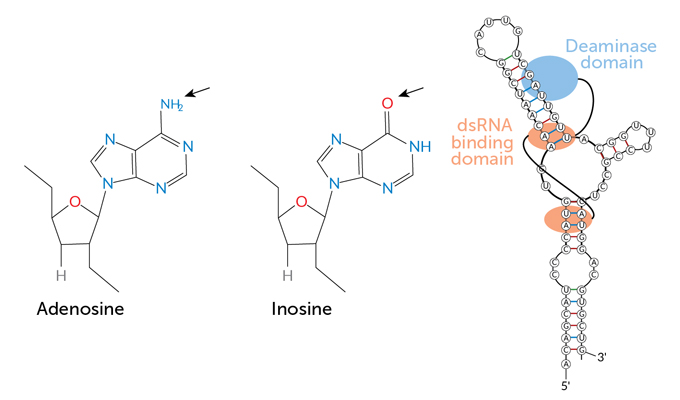Throughout the years, humans have been playing around with genetic coding, trying to make changes in other organisms that will benefit themselves. In doing so, they have made changes that have had some undesirable results. Some of these results consist of lowered immune systems, being oversized, and occasionally a higher likelihood of developing cancer. Knowing this, most people think conducting these types of tests is dangerous. In reality, this is the case sometimes; for example, some genetic testing on viruses has led to epidemics of widespread disease and death; one example is Covid-19. Knowing this would make the idea that a class of animals constantly conducts these genetic modifications. The animals are from the class Cephalopod. Instead of changing their DNA directly, they edit the RNA that’s produced. The editing happens within the cells where the RNA is, rather than in the nucleus, where it would alter the DNA. The enzymes that conduct these changes are called ADAR. While humans and other mammals also have these Enzymes, Cephalopods have Two enzymes: ADAR, and ADAR2. While our bodies make the same edits, Cephalopods make them much more often. One thing that could influence this is their higher quantity of recording sites. Cephalopods tend to have hundreds of thousands of recording sites, while humans have a few thousands.
When the enzyme edits the RNA, it changes the recipe. To explain, RNA is a translation of the instructions in the DNA into a recipe for the cells. The cells then use this recipe to create proteins the body needs to work efficiently. After the ADAR edits the RNA, the cell reads it and forms a protein out of amino acids based on the RNA’s instructions. The proteins created by the cells affect every aspect of a creature. These proteins can affect everything from eye color to height, even the speed at which your muscles develop. After the ADAR edits the RNA, the proteins produced could change anything within the octopus. These changes could be any number of things, from the number of tentacles they have to their mastership to survive in colder environments. With this in mind, it’s helpful to consider that they make these changes in RNA regularly.
All these alterations in RNA give them the ability to make changes when they need to. These changes could be for survival or to improve their quality of life. Scientists also believe that editing is what’s given the octopus its intelligence. Yet even though there are many good aspects, many scientists see some negatives that come with mass RNA editing. Many scientists think that this constant editing could hold back DNA evolution. Even though this is the case, RNA editing has given the cephalopods an evolutionary tentacle up. Even though we know what is happening and how this works, there is still more to learn from these amazing creatures.
Work Cited
Saey, Tina Hesman. “Octopuses and squid are masters of RNA editing while leaving DNA intact.” Science News, 19 May 2023, https://www.sciencenews.org/article/octopus-squid-rna-editing-dna-cephalopods. Accessed 31 August 2023.














